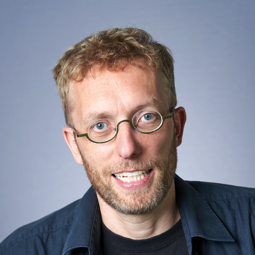Keynote Speaker

Kilian Q. Weinberger is an associate professor in the Department of Computer Science at Cornell University and a member of the Cornell Center of Data Science for Improved Decision-Making.
His research focuses on machine learning and its applications. In particular, he focuses on learning under resource constraints, metric learning, Gaussian Processes, computer vision and deep learning.
Weinberger received his doctorate from the University of Pennsylvania in machine learning and his undergraduate degree in mathematics and computing from the University of Oxford.
Keynote: "Deep Learning with Dense Connectivity"
Abstract: Although half a decade has passed since Frank Rosenblatt's original work on multi-layer perceptrons, modern artificial neural networks are still surprisingly similar to his original ideas. In this talk, we will question some of their most fundamental design aspects and shed some lights on the inner workings of neural networks. Guided by the quest to reduce and understand the role of parameter redundancy, we will arrive at a novel connectivity pattern, which we refer to as DenseNets. DenseNets depart from the traditional layer-to-layer connectivity and are to-date the most efficient and accurate neural network architectures on a variety of tasks. Finally, we will investigate the question why deep neural networks are so well suited for natural images, and provide evidence that they may linearize the underlying sub-manifold into a Euclidean feature space.
Speakers
Radu Balan is a professor in the Department of Mathematics and a member of the Center for Scientific Computation and Mathematical Modeling (CSCAMM). His research interests include topics in harmonic analysis and applications to engineering and computer science, particularly to statistical signal processing and machine learning.
Tudor Dumitraș is an assistant professor in the Department of Electrical and Computer Engineering and a member of the Maryland Cybersecurity Center (MC2). His research focuses primarily on data-driven (big data) approaches to problems in system security and dependability.
Soheil Feizi is an assistant professor in the Department of Computer Science. His research focuses on understanding various theoretical and practical aspects of machine learning and statistical inference problems.
Naomi Feldman is an associate professor in the Department of Linguistics and a member of the Computational Linguistics and Information Processing (CLIP) Laboratory. Her research focuses on integrating low-level speech features into a model of speech perception.
Vanessa Frias-Martinez is an assistant professor in the iSchool and an affiliate assistant professor in the Department of Computer Science. She also leads the Urban Computing Lab at UMD. Frias-Martinez’s research focuses on the use of large-scale ubiquitous data to model the interplay between human mobility patterns, social networks, and the physical environment.
Mark Fuge is an assistant professor in the Department of Mechanical Engineering. His research focuses on developing machine learning algorithms that learn from and subsequently aid human design and creativity—a mixture of topics that he calls design informatics.
Jen Golbeck is a professor in the College of Information Studies (iSchool) and an affiliate professor in the Merrill School of Journalism and the Department of Computer Science. Her research focuses on understanding how people use social media to improve the way they interact with information.
Furong Huang is an assistant professor in the Department of Computer Science. Her research focuses on machine learning, high-dimensional statistics, and distributed algorithms.
Joseph JaJa is a professor and interim chair of the Department of Electrical and Computer Engineering. His research interests are in high performance computing, long-term management and preservation of digital information, and large-scale data management, analysis and visualization.
Max Leiserson is an assistant professor of computer science and a member of the Center for Bioinformatics and Computational Biology (CBCB). His research focuses on machine learning and mathematical models to study biological processes, including cancer genomics.
Philip Resnik is a professor in the Department of Linguistics and a member of the Computational Linguistics and Information Processing (CLIP) Laboratory. His research focuses on machine translation, computational social science, and computational psycholinguistics.
Pratyush Tiwary is an assistant professor in the Department of Chemistry and Biochemistry. His group conducts interdisciplinary theoretical and computational research to model and predict thermodynamics, dynamics and their interplay in complex real-world systems, relevant to pharmaceutical, chemical and materials sciences.